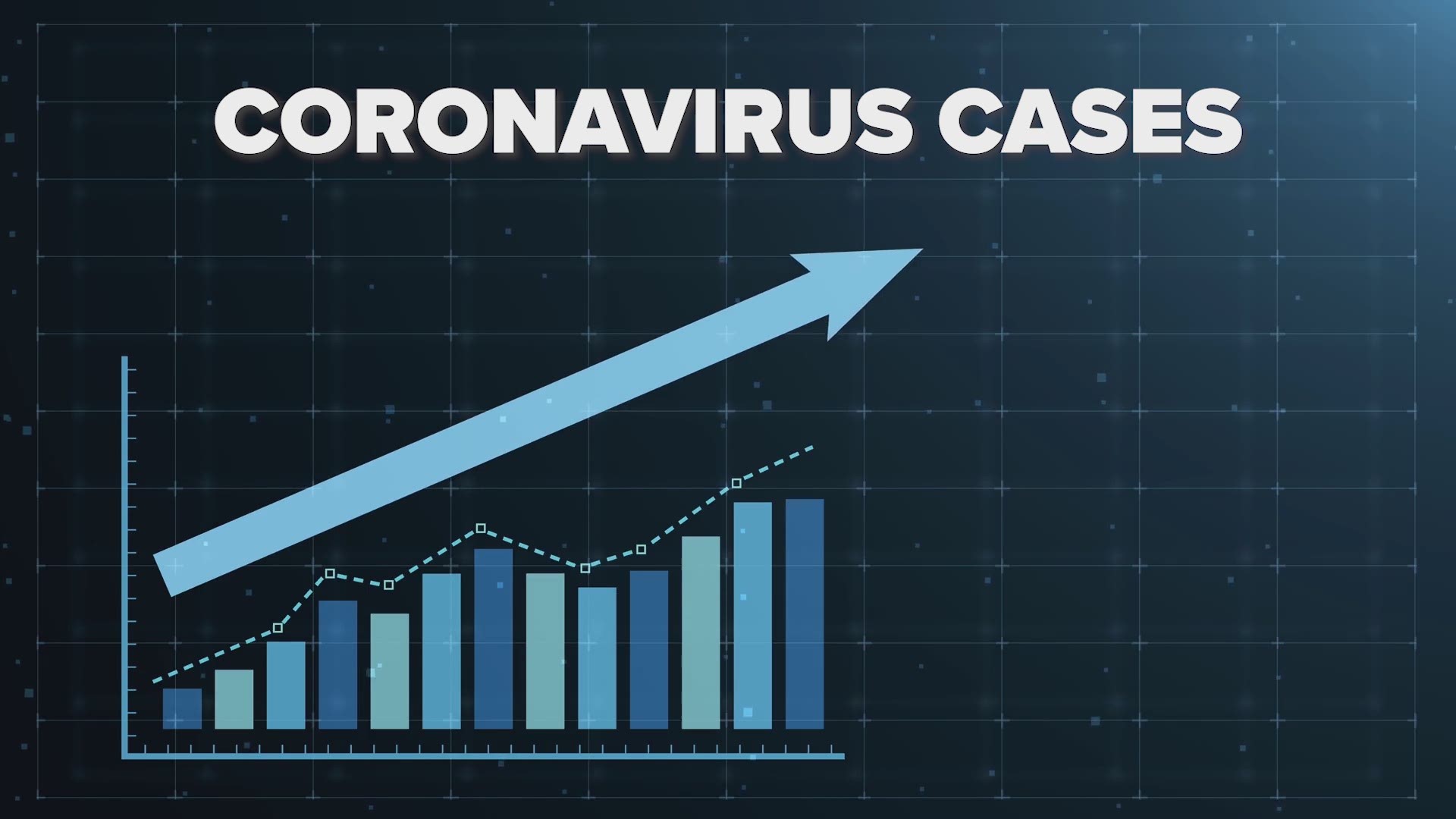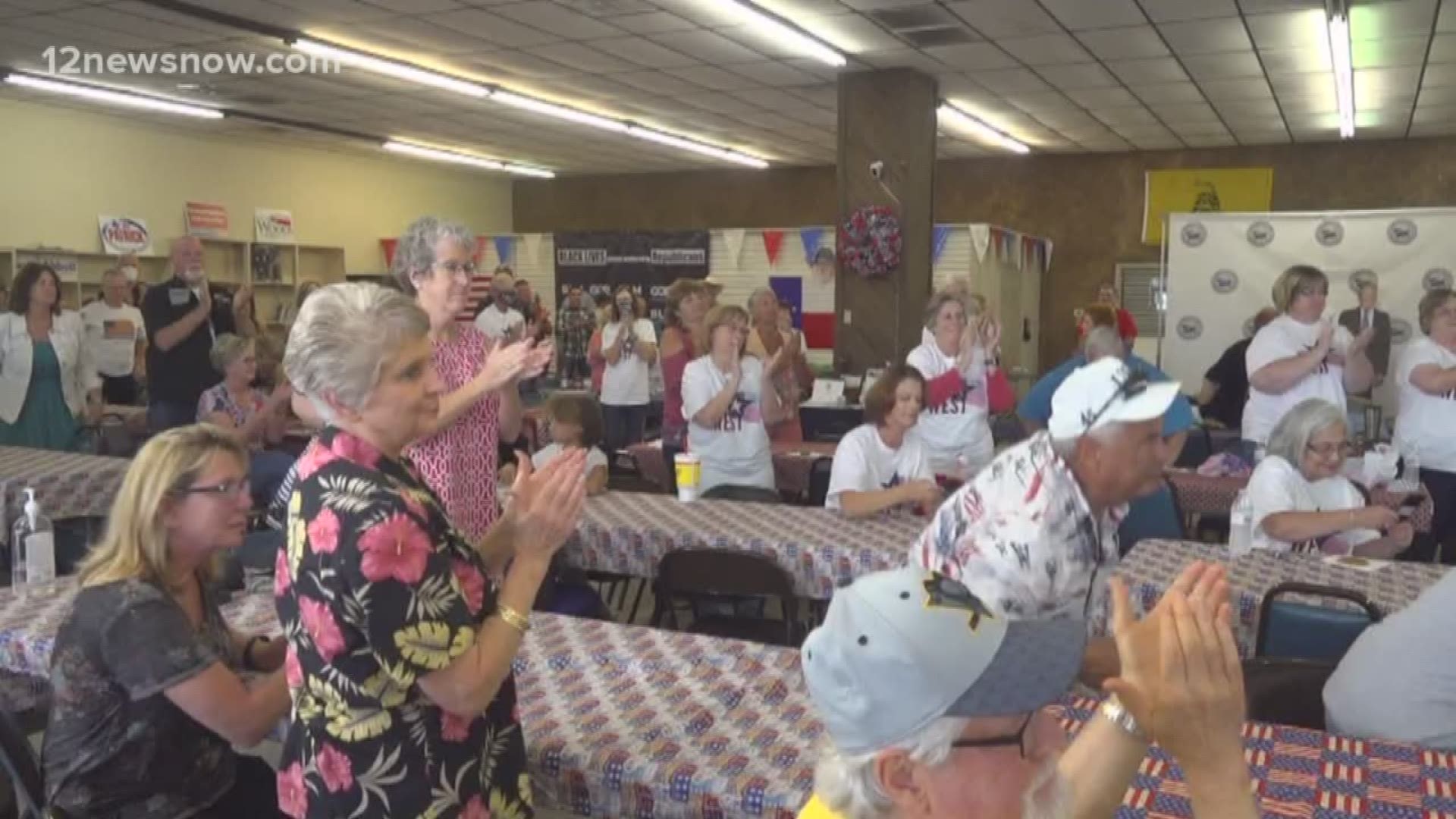BEAUMONT, Texas — This article contains ongoing U.S. and international updates on the COVID-19 pandemic and its effects. Here are some key updates for Monday, July 13, 2020. You can find more details by scrolling through the story which we are updating throughout the day. The newest items will be at the top.
Today's Headlines:
- Nederland City Pool to remain closed this summer
- Election costs soar in preparation for voting during COVID-19 pandemic
- Houston Rockets Russell Westbrook tests positive for COVID-19
- Texas Supreme Court denies Texas GOP's appeal to hold in-person convention this week in Houston
Latest updates:
Here are the latest updates from around Southeast Texas, Texas, Louisiana and some from the world (all times are local Central Daylight Time)
July 13, 9:00 p.m. – The City of Nederland announced on Monday that its pool will be closed for the remainder of the season. Read more.
July 13, 6:00 p.m. – The Museum of the Gulf Coast is partnering with LifeShare Blood Center to hold a blood drive on July 25. Free antibody testing will be available for those who donate. Donors will also get free Cane's, a t-shirt and free entrance to the museum. They'll also be able to take advantage of free resources from Beaumont Spindletop Center. You can give blood between 9 a.m. and 1 p.m. on 7/25 at 700 Procter Street in Port Arthur.
July 13, 2:30 p.m. – Orange Church of God will distribute food every Saturday for the next five weeks. Families can pick up carrots, pinto beans, potatoes, onions, oranges and apples at the church at 1911 N. 16th Street starting at 2 p.m. every Saturday from July 18 until August 15.
July 13, 6:30 a.m. – There are two testing sites open on Monday in Beaumont and Kountze.
Testing is available at Northridge Manor, 4155 Maida in Beaumont from 9 a.m. until 3 p.m.
Testing is also available in Kountze from 8 a.m. - 4 p.m. at Crestwood Baptist Church, 1150 Highway 69 South.
RELATED: Where can I get a COVID-19 test?
July 13, 6 a.m. – The demand for mail-in ballots is surging. Election workers need training. And polling booths might have to be outfitted with protective shields during the COVID-19 pandemic.
As officials prepare for the Nov. 3 election, one certainty is clear: It's coming with a big price tag.
“Election officials don’t have nearly the resources to make the preparations and changes they need to make to run an election in a pandemic,” said Wendy Weiser, head of the democracy program at the Brennan Center for Justice. “We are seeing this all over the place.”
Here’s the breakdown by county of coronavirus cases for the eight-county Southeast Texas region...
GET NEWS & WEATHER ALERTS | Download the 12News App to your mobile device
Coronavirus symptoms
The symptoms of coronavirus can be similar to the flu or a bad cold. Symptoms include a fever, cough and shortness of breath, according to the Centers for Disease Control.
Most healthy people will have mild symptoms. A study of more than 72,000 patients by the Centers for Disease Control in China showed 80 percent of the cases there were mild.
But infections can cause pneumonia, severe acute respiratory syndrome, kidney failure and even death, according to the World Health Organization. Older people with underlying health conditions are most at risk.
The CDC believes symptoms may appear anywhere from two to 14 days after being exposed.
Human coronaviruses are usually spread through...
- The air by coughing or sneezing
- Close personal contact, such as touching or shaking hands
- Touching an object or surface with the virus on it, then touching your mouth, nose or eyes before washing your hands.
Help stop the spread of coronavirus
- Stay home when you are sick.
- Eat and sleep separately from your family members
- Use different utensils and dishes
- Cover your cough or sneeze with your arm, not your hand.
- If you use a tissue, throw it in the trash
Lower your risk
- Wash your hands often with soap and water for at least 20 seconds. If soap and water are not available, use an alcohol-based hand sanitizer.
- Avoid touching your eyes, nose, and mouth with unwashed hands.
- Avoid close contact with people who are sick.
- Clean and disinfect frequently touched objects and surfaces.
- If you are 60 or over and have an underlying health condition such as cardiovascular disease, diabetes or respiratory illnesses like asthma or COPD, the World Health Organization advises you to try to avoid crowds or places where you might interact with people who are sick.


